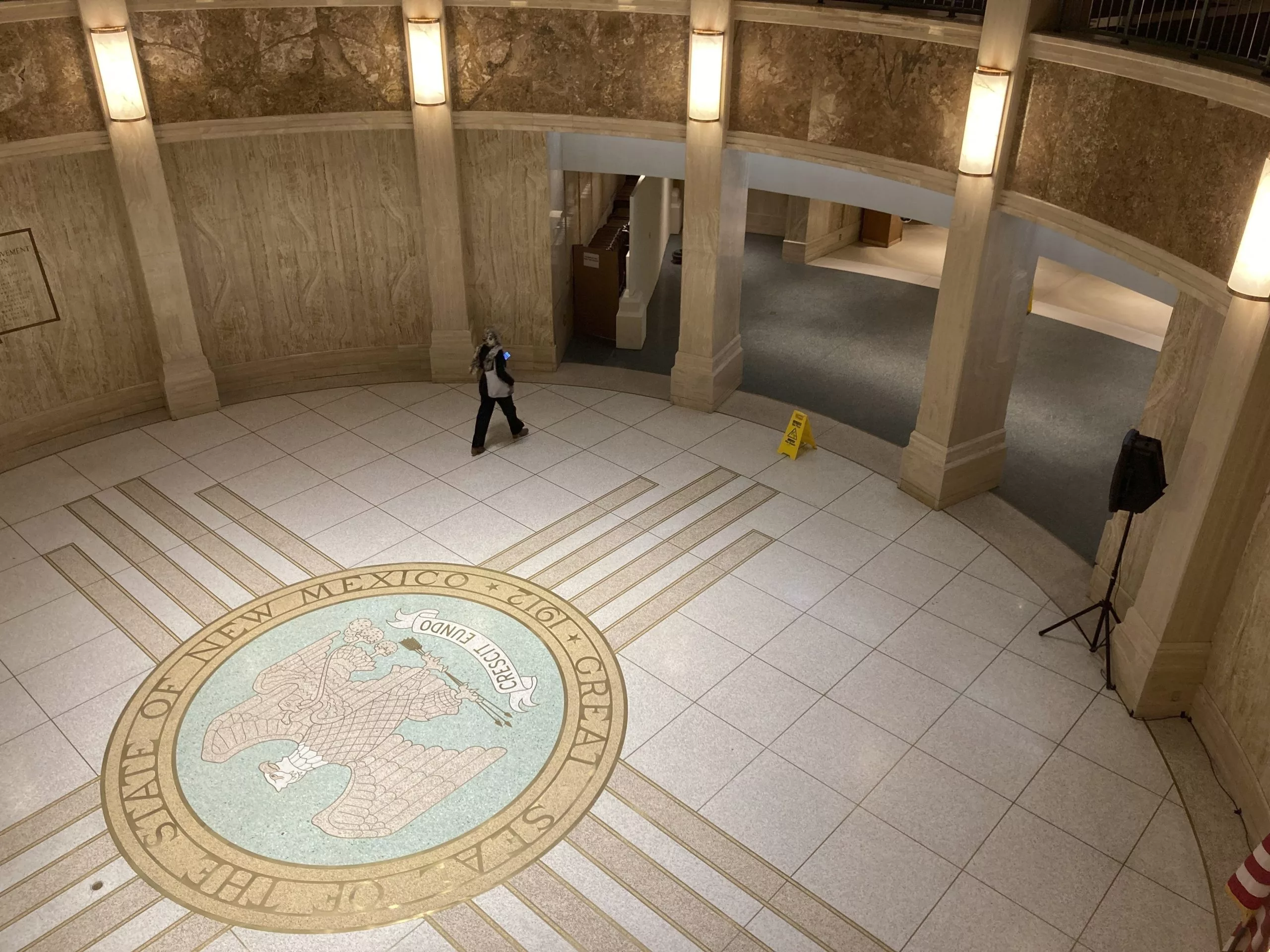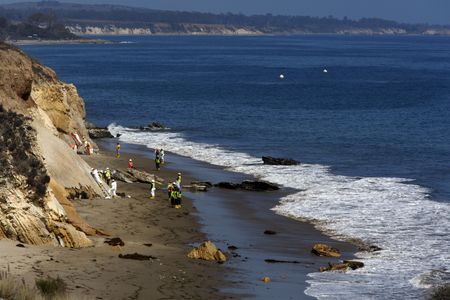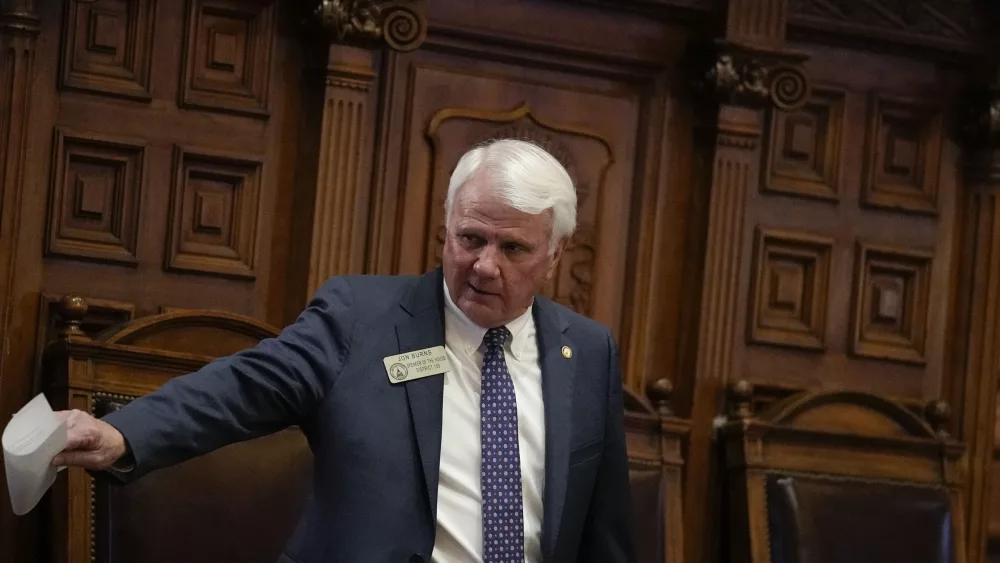SANTA FE, N.M. (AP) — Citing what she calls the “dangerous intersection” of crime and homelessness, New Mexico’s governor is calling on lawmakers to address stubbornly high crime rates as they convene Thursday for a special legislative session.
In issuing her proclamation, Gov. Michelle Lujan Grisham talked about a vulnerable segment of society that falls prey to drug and human trafficking. She also repeatedly referenced a “revolving door” within the state’s criminal justice system that has resulted in dangerous individuals and those who need mental health services remaining on the streets.
The governor pointed to thousands of cases that have been dismissed in recent years over competency questions, including many involving violent felonies.
“This should be a terrifying environment for anyone,” Lujan Grisham said, admonishing any lawmakers who don’t want to spend time to resolve the problems. “It’s unacceptable. We cannot be a permissive state for risk behavior.”
The two-term Democrat is urging lawmakers to consider longer minimum sentences for gun-toting felons, restrictions on panhandling and an expansion of involuntary detention and treatment for mental health problems and addiction.
Some leading legislators say the proposals could lead to unintended consequences. Groups that advocate for homeless people and civil rights worry that they would infringe on constitutional rights.
Here are some things to know about the special session:
FBI data shows steep drops in every category of violent crime across the U.S. in the first three months of 2024 compared with the same period a year earlier, continuing a downward trend since a coronavirus pandemic surge.
That’s not the case in the Albuquerque metropolitan area — home to roughly one-third of New Mexico residents — where violent crime rates are holding steady at about three times the national average. Criminal cases involving juveniles and guns rose last year, as authorities also grappled with encampments of homeless people on sidewalks and in riverside parks.
Albuquerque Mayor Tim Keller said Wednesday that the city cleared 1,000 encampments in June alone and spends $1 million a month on housing vouchers. It’s not enough, he said.
Lujan Grisham said the streets still aren’t safe after lawmakers in February approved modest public safety reforms that extend a waiting period on gun purchases to seven days and give judges an extra opportunity to deny pre-trial bail in dangerous situations.
This week the governor extended emergency public health orders for the Albuquerque area regarding gun violence and illicit drug use that were first invoked in September 2023.
Several states including California and Tennessee are embracing a more forceful approach to untreated mental illness and addiction issues amid concerns about crime and homelessness.
Lujan Grisham wants legislators to make it easier to place a person involuntarily into treatment. She also wants to give courts and prosecutors more leeway to detain and evaluate criminal defendants when mental competency is in question.
Ben Baker, a senior public safety adviser to the governor, said it’s time to intervene in new ways when a court declares a defendant mentally incompetent.
“Incompetency is determined, they are released and they return for very similar criminal conduct, ad infinitum,” Baker said in a podcast interview with The Santa Fe New Mexican.
The ACLU and other advocacy groups warn that the governor’s initiatives would make it easier to force someone into a locked mental health facility.
The proposed agenda for the special session also includes enhanced penalties for a convicted felon found in possession of a gun during the commission of another crime. The governor wants a minimum nine-year prison sentence with no reductions for good behavior.
Another initiative would make it illegal to loiter on narrow medians amid high-speed traffic, responding to a proliferation of urban panhandlers.
Proponents say panhandlers can still exercise free-speech rights to ask for money from sidewalks and other areas. The ban would apply to medians up to 3 feet (1 meter) wide on streets with a 30 mph (45 kph) speed limit.
Also under the proposals, state agencies would collect and analyze information on a monthly basis from local law enforcement agencies about crime and any guns involved.
Frustrations are mounting after legislators appropriated more than $800 million over the past three years to address crime, including underlying mental health issues.
State Democratic House speaker Javier Martínez of Albuquerque said at a news conference Monday that the governor’s approach is uninformed and could backfire.
“We have deep concerns about the potential impact these proposals will have on New Mexicans, especially the most vulnerable among us,” he said.
Legislators including Democratic Senate Majority Leader Peter Wirth of Santa Fe are expressing support for a possible expansion of voluntary treatment programs for people with severe mental illness through both civil and criminal court proceedings.
Daniel Williams of the ACLU of New Mexico said that approach, using a pilot program to see what works and what doesn’t, “is much more encouraging to us than rushing into legislation where there are some real risks of harm.”
___
Associated Press reporter Susan Montoya Bryan in Albuquerque contributed.
Brought to you by www.srnnews.com







